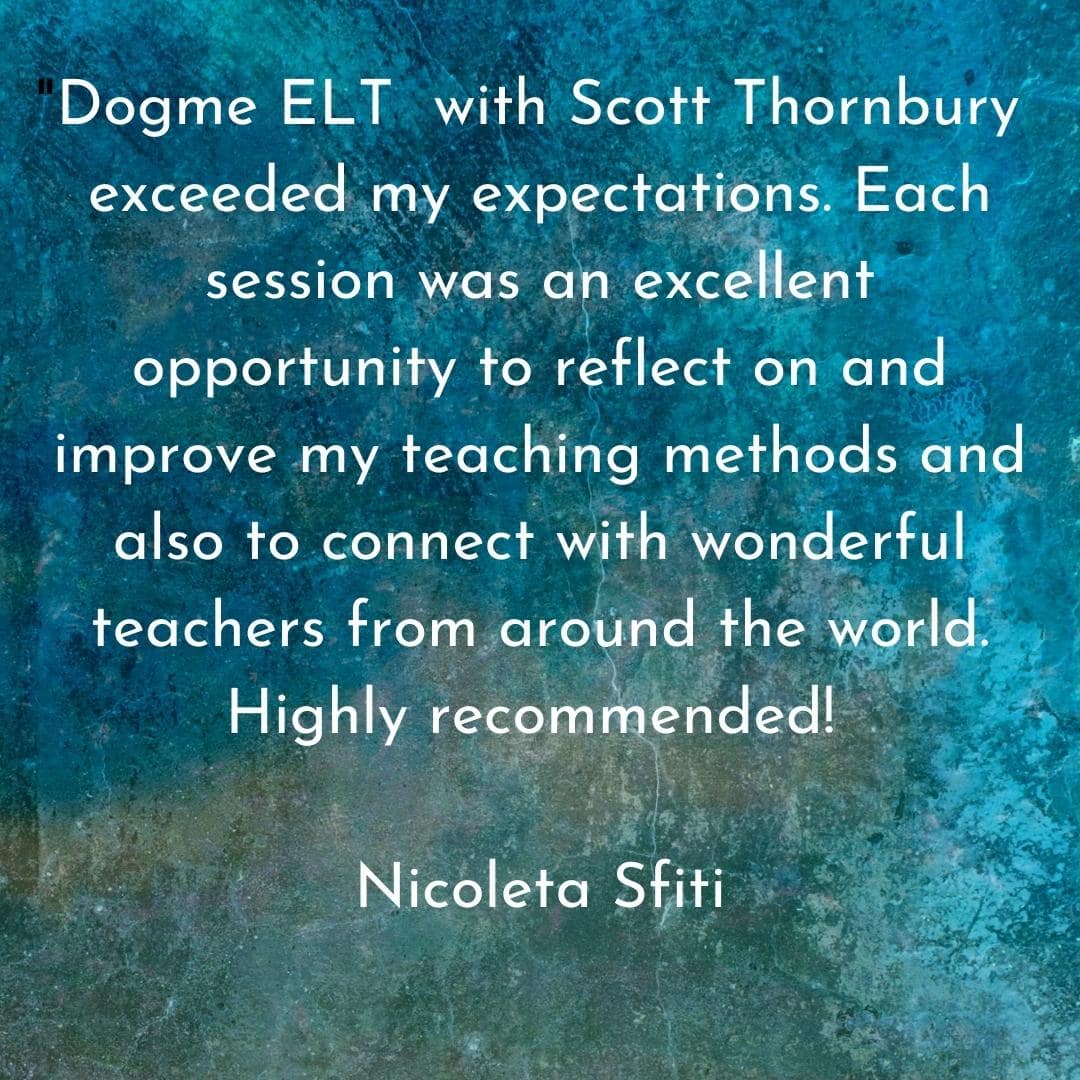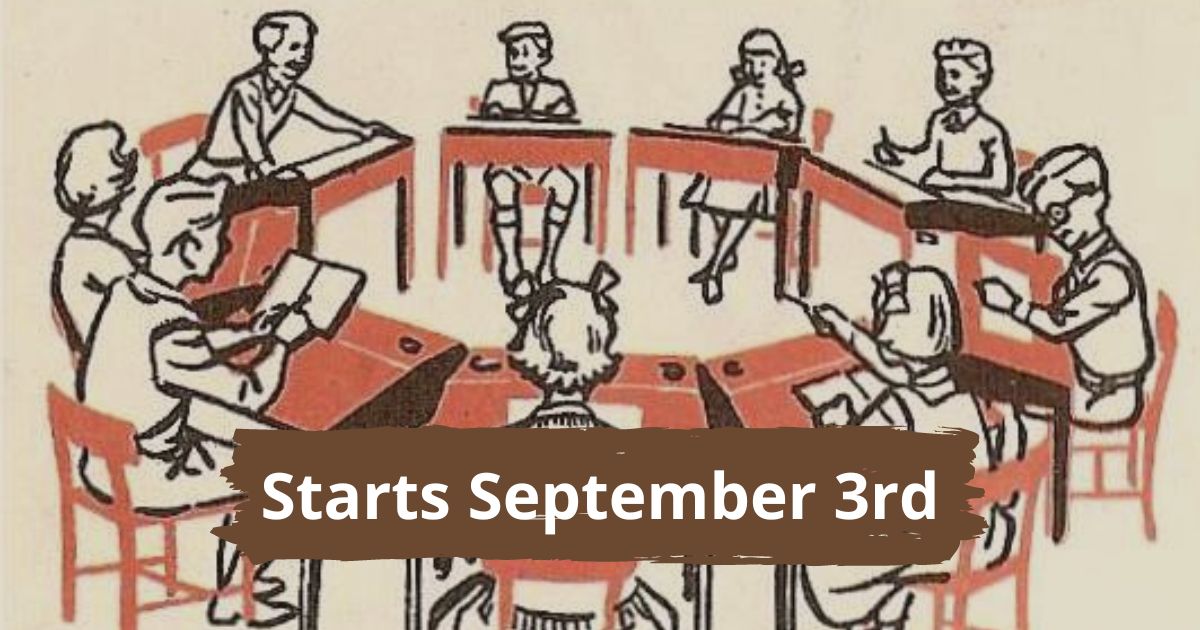Dogme language teaching is both a methodology and a mindset. It is an approach to teaching that is conversation-driven and focuses on emergent language and student needs over materials. Learning how to make interaction with learners the foundation of your teaching can also help teachers use coursebooks more effectively, create grammar lessons that stick, build literacy, and encourage participation in online lessons.
Do you want to...
...make your lessons more satisfying (for both you and your students)?
...learn how to use your coursebook in ways that better meet your students' needs?
...know how to build a lesson around emergent language?
If you answered yes to these questions, then this course is for you!
And if you are working with limited resources or technology, you'll find this course even more relevant.
‘Dogme language teaching is considered to be both a methodology and a movement’ (Wikipedia). Alternatively, according to Keith Johnson (An Introduction to Foreign Language Learning and Teaching, 2008) it ‘is not an approach, but a mindset’. Johnson also describes its co-founder, Scott Thornbury, as ‘a main mover and shaker in foreign language teaching’.
This course is for teachers who want to learn more about this method, movement or mindset, from the mover and shaker who first conceived it.
In line with the philosophy of Dogme ELT, the specific content of this course will adapt to meet the needs of the teachers who enrol. For more information about course content, select 'Course Curriculum' at the bottom of this page or go directly to About Dogme ELT.
Live online Zoom sessions will be held four times in September, on Sundays at 10:00 GMT. Live sessions (registered participants only):
- September 3rd
- September 10th
- September 17th
- September 24th

Cost: $169 USD*
- The course includes four live sessions plus ongoing meaningful discussions each week in a private forum.
- Due to Scott's high quality interaction with each participant and the hands-on workshop nature of this course, registration will be limited to 35.
- To receive a certificate, you will be expected to attend weekly live sessions (or watch the recordings) and participate in course forum discussions.
This 4-week online iTDi Advanced Skills course will bring up to 35 teachers together in our user-friendly iTDi online classroom every Sunday, and then continue throughout the week – sharing, discussing and reflecting in a private, but vibrant, online community.
As a registered participant, don’t worry if you have to miss a live class or if the time for the live sessions doesn't work well for your time zone. You’ll receive weekly recordings of each class, full transcripts of the text chat during class, assigned readings and a PDF of the PowerPoint slides. Furthermore, the online community will certainly become a wealth of ideas and information, and will remain private and online for your use anytime in the future.
Scholarships
As always, iTDi believes that all teachers deserve the same opportunity to improve themselves. Therefore, a limited number of partial to full scholarships will be available for this course. Priority will be given to teachers working in low-resource contexts. Please apply through our scholarship application.Scott Thornbury
Scott Thornbury is a teacher and a teacher educator, with over 40 years’ experience in English language teaching. Until recently, he taught on an online MA TESOL program for The New School in New York. His previous experience includes teaching and teacher training in Egypt, UK, Spain, and his native New Zealand. Scott’s writing credits include several award-winning books for teachers on language and methodology including “The A-Z of ELT”, “How to Teach Grammar” and “Teaching Unplugged”. He is series editor for the “Cambridge Handbooks for Teachers” (CUP) and was also the co-founder of the Dogme ELT group. Scott’s thought-provoking blog, An A-Z of ELT, is a popular site for many teachers and has been adapted as an e-book, “Big Questions in ELT”. His most recent books are “Scott Thornbury’s 30 Language Teaching Methods” and “Scott Thornbury’s 101 Grammar Questions”


Related Courses
Neuroscience of Language Learning 2 - Explorations
February 25, 2026$280.00Writing Graded Readers for ELT
February 25, 2026$240.00Neuroscience of Language Learning 1 - Fundamentals
February 25, 2026$280.00





